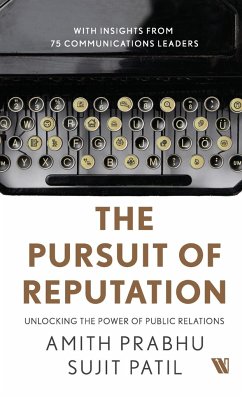
Political Reputation Management
The Strategy Myth
Versandkostenfrei!
Versandfertig in 1-2 Wochen
177,99 €
inkl. MwSt.
Weitere Ausgaben:

PAYBACK Punkte
89 °P sammeln!
It is widely assumed that a competitive political environment of public distrust and critical media forces political parties to manage communications and reputations strategically, but is this really true? Comprehensive control of communications in a fast-moving political and media setting isoften upset by events outside the communicator's control, taking over the news agenda andchanging the political narrative. Based on interviews with leading communicators and journalists, this book explores the tensions between a planned, strategic communications approach and a reactive, tactical one. The i...
It is widely assumed that a competitive political environment of public distrust and critical media forces political parties to manage communications and reputations strategically, but is this really true? Comprehensive control of communications in a fast-moving political and media setting isoften upset by events outside the communicator's control, taking over the news agenda andchanging the political narrative. Based on interviews with leading communicators and journalists, this book explores the tensions between a planned, strategic communications approach and a reactive, tactical one. The interviewees, who over the past 15 years have been instrumental in presenting and shaping the public persona of party leaders and Prime Ministers, include, amongst others, William Hague, Ian Duncan-Smith, Michael Howard, David Cameron, Tony Blair and Gordon Brown.It draws a unique picture of how political reputations are managed and, ultimately, confirms the discrepancy between what political communications management is thought to be, and how communications practitioners actually operate. This book empirically reviews political communications practice in order to analyse to what degree reality matches the concepts of strategic communications management. This will be essential reading for researchers, educators and advanced students in public relations, communications studies and marketing.













